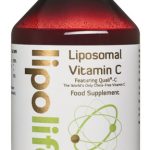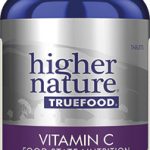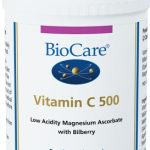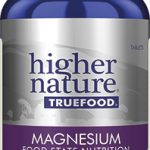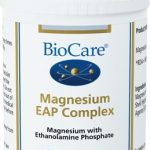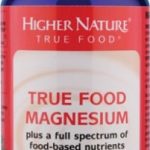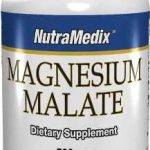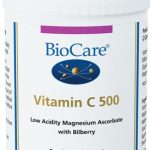Of all those essential nutrients we recognise as vitamins, few spring to mind so readily as Vitamin C. Why is that? Is it ‘healthier’ than the others? No, not necessarily; but it is incredibly important we all get our regular fill of it (as this article will outline). Actually, perhaps the reason it’s so mentioned and such a permanent fixture is because we – or rather, our bodies –have trouble with it; that is, they can’t store it naturally, ensuring we have to source it from our food and drink each and every day. And this means, since its discovery in 1930, there’s always been an understandably big to-do about the necessity to get as much Vitamin C as we can from dietary sources.
Just what Vitamin C – or ascorbic acid, to give its more scientifically precise name – does for our bodies makes for a very long list, indeed. It truly is indispensable. First up, it’s a highly effective antioxidant, which means it combats the harmful effects of free radicals1. For, unless stopped by antioxidants, each of these nasty single-electron molecules destroy other molecules – and cells – in the body in its attempt to try and find another electron with which to pair off and ‘complete’ itself. Should they be given a free rein, once they’ve found their way into the body, free radicals can run riot and contribute to serious conditions developing like arthritis, heart disease and even cancer1. Vitamin C’s antioxidant properties are absolutely critical in making sure they don’t.
In this way, the vitamin helps to protect and maintain the health of the body’s cells and, thanks to its involvement in the creation of collagen, it plays a crucial role in supporting the structure of connective tissues throughout the body, given that collagen’s a protein involved in the production process of skin, cartilage, tendons, ligaments and blood vessels1. Furthermore, Vitamin C’s a contributor to boosting the body’s iron levels (iron being a nutrient that’s a key ingredient of haemoglobin, which carries oxygen in the blood from the lungs to the organs and cells it needs to reach). And, as if all that wasn’t enough, Vitamin C’s also just as crucial to wound healing here, there and everywhere in the body1.
Benefits of Vitamin C
As should now be clear then, this vitamin’s influence on the body – so long as it’s regularly consumed – is enormous and extremely varied. Its benefits extend into all areas of physical health; to be clear then, Vitamin C can help with all the following ailments:
- High blood pressure – developing this condition runs the risk of eventually experiencing heart disease and a stroke; eating foods rich in Vitamin C isn’t just good for your overall health, but research suggests especially so for those at risk of high blood pressure2.
- Skin-ageing – everybody’s skin ages; that’s just a natural rule, right? Well, yes, but it appears that regular Vitamin C consumption may help in the fight to keep your skin appear and feel healthy. Research suggests the higher the intake of the vitamin the less likely someone will experience a wrinkled appearance and the more likely their appearance will reflect healthy skin-ageing3.
- Gout – a study has shown that Vitamin C can be associated with a lower risk of gout in men; the study’s results proved that, among its subjects, those that took Vitamin C supplementation reduced their risk by nearly a third (31%) and by upping their intake further they cut their risk by nearly one-half4.
- Urinary tract infection – there may also be evidence to suggest that daily Vitamin C supplementation could reduce the chance of a urinary tract infection (UCI) developing in women while they’re pregnant; presumably because the nutrient is effective at preventing bacteria growing due to it adding a greater acidic content to urine5.
- Macular degeneration – should you have advanced age-related macular degeneration (AMD), it seems that Vitamin C – in collusion with zinc, beta-carotene and Vitamin E – can work to tackle this eye-destroying ailment (it’s the biggest cause of legal blindness in those over 55 years-old in the United States)6.
- Asthma – not all studies have found that Vitamin C aids asthma treatment beyond all doubt, yet some research does seem to suggest that it could help reduce the symptoms of exercise-induced asthma7.
Incorporating more Vitamin C into your diet
So much for what Vitamin C can do for your body, but seeing as this water-soluble nutrient isn’t naturally stored in the body, how can you ensure you get enough of it? Well, the traditional and simplest way is to do so through a healthy, sensible diet that’s deliberately rich in as many nutrients as you can reasonably squeeze into it.
To wit, the following foods are all excellent sources for Vitamin C: blueberries, cranberries, raspberries and strawberries; broccoli; Brussels sprouts; cabbage; canned and fresh tomatoes; cantaloupe; cauliflower; citrus juices (and other juices fortified with Vitamin C); grapefruit; kiwis; mangoes; oranges; papayas; pineapples; potatoes; red and green peppers; watermelons; winter squash and finally, raw and lightly cooked leafy greens (turnip greens, spinach and more).
Vitamin C supplements
You may feel, however, that you’ll struggle to incorporate a majority, or even several of those above foods into your diet to get your fill of Vitamin C – or should you be a smoker (and are having trouble/ have no desire of giving up) you’ll no doubt find that improving your diet isn’t enough to get all the Vitamin C you need. What to do then? Well, you could, of course, turn to naturally-derived, non-synthetic, nutrient-rich products to supplement your diet’s Vitamin C content. For instance, take a glance out our ‘Vitamin C’ section here at The Finchley Clinic and you’ll see how many appropriate and highly beneficial supplements we stock – three examples of which are:
Liposomal Vitamin C – by deploying state-of-the-art technology, this product’s nutrients are blended with tiny nanoparticles (phospholipids) to ensure its Vitamin C reaches the body’s cells more precisely and simply; also contains aloe vera, potassium sorbate and Vitamin E.
True Food Vitamin C – offering a potent form of the vitamin (thus large doses aren’t necessary), this product offers a food-based formula so it can be easily absorbed by the body; also comprises citrus bioflavonoids for additional immune support.
BioCare Vitamin C – a bio-available, buffered and low-acid source of Vitamin C; combined with magnesium and bilberry extract, the latter providing flavonoids for a potently high antioxidant content.
References:
- ‘Vitamin C (Ascorbic acid)’. UmmEdu. http://www.umm.edu/health/medical/altmed/supplement/vitamin-c-ascorbic-acid. Last reviewed: 16 Jul 2013.
- Juraschek S. P., Guallar E., Appel L. J. and Miller E. R. ‘Effects of vitamin C supplementation on blood pressure: a meta-analysis of randomized controlled trials’. Am J Clin Nutr. 2012; 95 (5): 1079-88.
- Cosgrove M. C., Franco O. H., Granger S. P., Murray P. G. and Mayes A. E. ‘Dietary nutrient intakes and skin-aging appearance among middle-aged American women’. Am J Clin Nutr. 2007 Oct; 86 (4): 1225-31.
- Choi H. K., Gao X. and Curhan G. ‘Vitamin C Intake and the Risk of Gout in Men – A Prospective Study’. Arch Intern Med. 2009 Mar; 169 (5): 502–507. doi: 10.1001/archinternmed.2008.606.
- Beerepoot M. and Geerlings S. ‘Non-Antibiotic Prophylaxis for Urinary Tract Infections’. Pathogens. 2016 Jun; 5 (2): 36. Published online 2016. Apr 16. doi: 10.3390/pathogens5020036.
- Zheng S. J., Rautiainen S., Lindblad B. E., Morgenstern R. and Wolk A. ‘High-dose supplements of vitamins C and E, low-dose multivitamins, and the risk of age-related macular degeneration’. Am J Epidemiol. 2013; 177 (6): 548-55.
- Kaur B., Rowe B. H. and Ram F. S. ‘Vitamin C supplementation for asthma (Cochrane Review)’. Cochrane Database Syst Rev. 2001; 4: CD000993.

